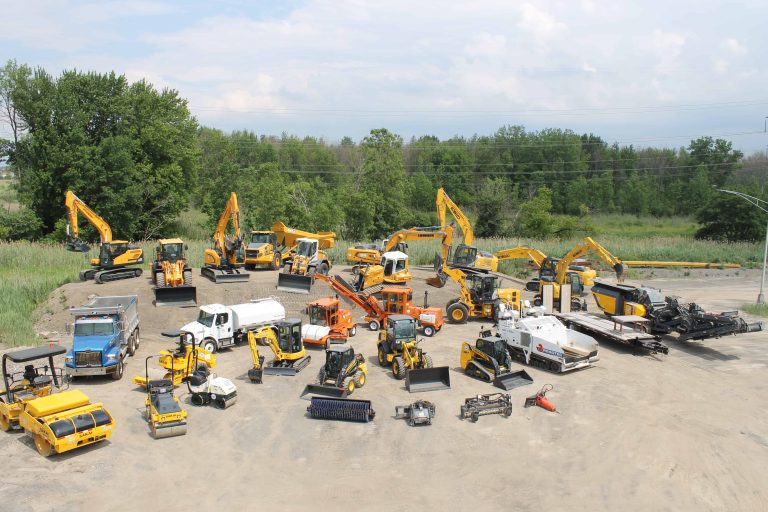Equipment Rental Company: Your Source for All Sorts Of Equipment
Equipment Rental Company: Your Source for All Sorts Of Equipment
Blog Article
Maximize Your Budget Plan by Understanding the Prices Connected With Building And Construction Devices Services
Comprehending the complete extent of expenses linked with construction devices services is critical for optimizing your spending plan. While the initial rental charge may appear straightforward, countless extra expenses-- such as transportation, gas surcharges, and upkeep-- can swiftly accumulate, affecting your economic planning. Being conscious of various fees and the details of rental agreements can assist prevent unforeseen financial burdens. What methods can be utilized to properly manage these expenses and make certain a much more reliable rental experience?
Review of Rental Costs
When thinking about building and construction devices services, recognizing the connected expenses is critical for reliable budgeting and task preparation. Rental prices can differ significantly based on numerous elements, consisting of tools type, duration of rental, and location. The preliminary rental cost commonly reflects the equipment's market demand and its connected functional capacities, affecting the total cost.
In addition to the base rental rate, ancillary costs might develop, such as transportation charges, fuel surcharges, and maintenance charges. It is important to represent these extra expenses to accurately analyze the overall price of leasing tools. The rental duration can impact rates; longer leasings may qualify for affordable prices, while short-term leasings may incur greater daily costs.

Break Down of Rental Rates
A comprehensive understanding of rental rates is vital for service providers and job supervisors intending to enhance their budget plans. Rental rates for building and construction equipment usually include several parts, including base prices, time-based costs, and usage costs.
Base rates are the core charges linked with the leasing of the tools, often established by the kind and dimension of the equipment. These prices can differ dramatically, influenced by variables such as devices need, schedule, and regional market fads. Time-based fees, which might be daily, weekly, or monthly, serve to fit various job timelines and rental durations.
Furthermore, rental prices may include use fees, which apply when equipment is utilized past a specified limit, ensuring that the rental business can make up wear and tear. Seasonal demand fluctuations can likewise impact rental prices, with peak building periods usually commanding greater costs.
Additionally, comprehending the rental firm's policies pertaining to upkeep and insurance policy can give more insight right into the total price framework. By assessing these components, service providers can make enlightened decisions, making sure the selection of rental devices lines up with both job demands and budget restraints.
Added Costs to Consider
Understanding the details of extra costs is important for specialists to manage their total leasing expenses efficiently. Beyond the standard rental rates, different supplementary fees can significantly impact the overall cost of tools leasing. These charges typically include delivery and pick-up costs, which can vary based upon distance and logistics associated with moving the devices to and from the job site.
Furthermore, some rental companies might impose gas additional charges if the tools is returned with much less gas than when leased. It is additionally important to be aware of possible cleansing fees, particularly for specialized devices that requires comprehensive upkeep after use.

Thoroughly reviewing the rental contract and clearing up these extra fees upfront can aid specialists stay clear of unexpected expenses and make certain that spending plans stay undamaged throughout the project lifecycle.
Repair And Maintenance Expenses
Normal repair and maintenance costs are often forgotten variables that visit their website can considerably influence the total cost of building tools rentals. When renting out equipment, it is critical to think about not just the rental charges yet also the prospective expenses related to maintaining the equipment in ideal operating condition.
Several rental business consist of basic maintenance as component of the rental arrangement; nonetheless, more substantial fixings or unexpected breakdowns can result in additional costs. It's important to review the rental contract very carefully to understand what maintenance services are covered and what duties fall on the occupant.
In addition, equipment that is not well-maintained can lead to inefficiencies at work website, possibly creating hold-ups and enhancing job costs. To reduce these risks, it is suggested to carry out regular assessments and keep open interaction with the rental supplier pertaining to any type of concerns that occur during usage.
Insurance and Obligation Prices
Insurance and responsibility expenses are vital parts that can considerably impact the general cost of building tools rentals (mini excavator rental). These costs make sure that you could look here both the rental firm and the customer are safeguarded from potential economic losses occurring from accidents, damages, or burglary throughout the rental period

Furthermore, customers ought to know any deductibles or exclusions in the insurance plan, as these can affect prospective out-of-pocket expenditures. Recognizing the terms and problems of any type of insurance coverage is crucial to prevent unexpected expenses. Eventually, budgeting for insurance policy and liability expenses can help guarantee Bonuses a smoother rental experience and secure versus economic threats connected with building projects.
Conclusion
In conclusion, a thorough understanding of the expenses associated with building devices rentals is vital for effective budget plan monitoring. Ultimately, notified decision-making regarding tools rentals contributes to the general success of building and construction undertakings.
Rental expenses can differ substantially based on numerous elements, consisting of devices kind, duration of rental, and location (dozer rental). The rental period can affect rates; longer leasings might qualify for affordable prices, while temporary rentals could sustain greater everyday fees
By conducting detailed study and engaging with trustworthy rental business, contractors can effectively navigate the complexities of rental prices, ultimately maximizing their economic resources.
Beyond the standard rental rates, numerous supplementary fees can substantially influence the complete price of tools service. Rental business typically supply responsibility insurance coverage that covers injuries to third celebrations or damage to property, while equipment damages insurance can cover the expense of repairs or substitute if the leased equipment is harmed.
Report this page